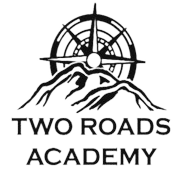The Four Pillars
Therapeutic: Acceptance and Commitment Therapy Pillar
ACT is a model of values driven behavior change that increases a person’s psychological flexibility. Through this model we teach students how to become aware of their own values, and notice how their behavior is moving them toward or away from those values. In the process, students learn how to notice thoughts and feelings that come up for them (whether aversive or pleasant) and make some space between those thoughts and feelings and the behaviors in which they engage.
Developing these skills of noticing, accepting, and engaging in values-driven behaviors allows what some might consider time to ‘think before you act’. ACT also helps develop a set of tools to increase perspective taking.
The empirical support for ACT as an effective model for social emotional learning and growth is robust and growing. Currently over 300 randomized control trials have demonstrated that the use of ACT has decreased psychological suffering and led to more functioning and workable engagement with life. Students engage in weekly sessions with our ACT therapists.
Social and Emotional Learning (SEL) Pillar
Social and Emotional Learning (SEL) is embedded in everything we do at Two Roads Academy. Students receive consistent social coaching and support from our highly qualified staff throughout each day and across all settings. At Two Roads, we also provide each student with individual SEL opportunities through (1) Behavioral Supports and (2) the “MySELF” program.
Behavioral Supports: At Two Roads Academy, we offer individualized behavior programming for every student created by a Board Certified Behavior Analyst (BCBA). These plans are written to give students the opportunity to learn and practice functional communication skills and prosocial behaviors that will aid them in better accessing their education and community. At TRA, we focus on teaching and reinforcing behavioral and psychological skills that will open up each student's world. The overall goal of our behavioral programming is to coach and provide support to students while they increase behavioral & psychological flexibility, learn self-advocacy & self-awareness skills, and ultimately, become positive agents of change in their own lives. Behavioral Support at Two Roads Academy is rooted in Applied Behavior Analysis, which is an empirically based science, where plans are created through ongoing observation with data-based decision-making to produce socially significant outcomes for those being served. With this highly individualized, function-based approach, we can ensure that we will always be able to meet students where they are at and provide them with effective therapeutic interventions to get them where they need and want to be.
“MySELF”: My Social Emotional Learning Foundations (MySELF) is designed to give all students the opportunity to learn and explore topics related to emotional health and social skills at their own pace. This program is delivered through carefully selected and designed instruction in the form of videos and worksheets, as well as continuously embedded social coaching by our uniquely and highly qualified Behavior ACTivists. The “My SELF” program covers the areas of: Self-Awareness, Self-Management, Social-Awareness, Relationship Skills, and Responsible Decision-Making.
Outdoor Education Pillar
The Two Roads Outdoor Program is designed to foster resilience, develop problem-solving and teamwork, and engender stewardship of the outdoors. Students will explore their natural environment and their local community through hands-on projects, group expeditions, and a variety of outdoor activities.
Our outdoor education component offers a unique and experiential entry point to six key characteristics that are important to success in life: critical thinking, problem-solving, teamwork and collaboration, creativity and innovation, diversity, and leadership. These skills are often seen as Transferable Skills in district curriculum materials around the state of Vermont. At Two Roads we provide Outdoor Program opportunities through:
Basecamp Outdoor Programming
Adventure Activities
Community Engagement Projects
Expeditions
Individualized Learning: Academics: Student-Centered Co-Teaching Pillar
Qualified English Language Arts/Social Studies and Math/Science teachers collaborate with TRA’s special educator to design and deliver curriculum materials and learning tasks which help students progress toward personal and Individualized Education Plans (IEP’s) goals and building transferable skills outlined in the Agency Of Education’s Vermont Portrait of a Graduate.
Two Roads understands that many students have had inconsistent access to new learning, and strives to meet students where they are and use research-backed, data-driven methods to help students fill gaps in understanding. Our content area teachers and our special educator will work together to develop small group lessons which follow the general progression of the common core state standards.
As with behavioral supports and social-emotional learning, academic programming is developed with the intention of educating the whole child, building discrete skills students need to fill gaps in understanding and enable reintegration to less restrictive learning environments while attending to students’ unique skills and needs and supporting the development and generalization of transferable skills critical to success in life beyond school. Because TRA does not require its teachers to adhere to a set curriculum, our educators are able to design and teach courses which are tailored to meet the needs and interests of the student body and progress at whatever pace is appropriate.
Co-teaching ensures that both an accommodation expert (the special educator) and a content expert (the licensed math/science or LA/SS teacher) are present and available throughout academic blocks to continuously adapt and modify tasks so all students can access new learning and achieve proficiency in new skill areas. This flexibility also allows the educational team to engage in methods such as project based learning which foster a deeper understanding of concepts and connections across content area through exploring and answering complex and meaningful questions or collecting data to solve real-world problems. Through a variety of academic tasks, students develop deep content knowledge, critical thinking skills, creativity, and communication skills in the context of authentic, meaningful tasks. Proficiency-based grading is used to track student progress. This method reinforces and supports our focus on building student skills toward independence and transferable proficiency.



